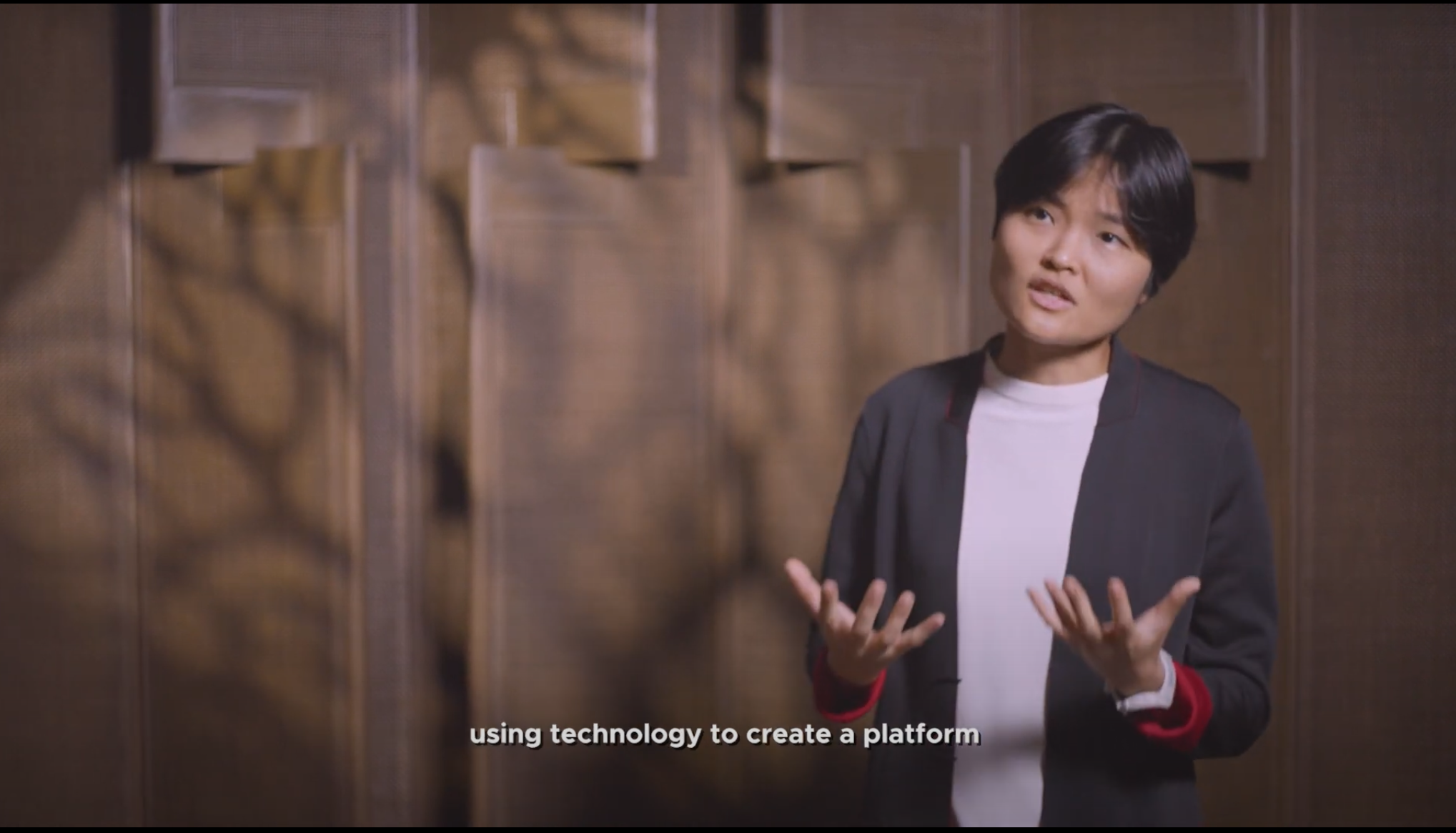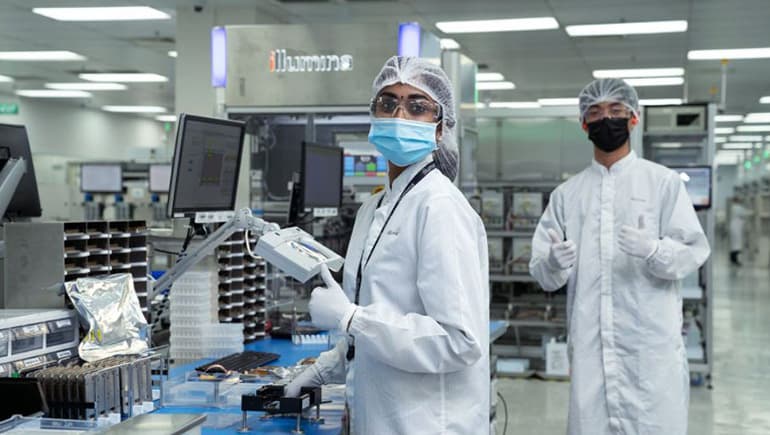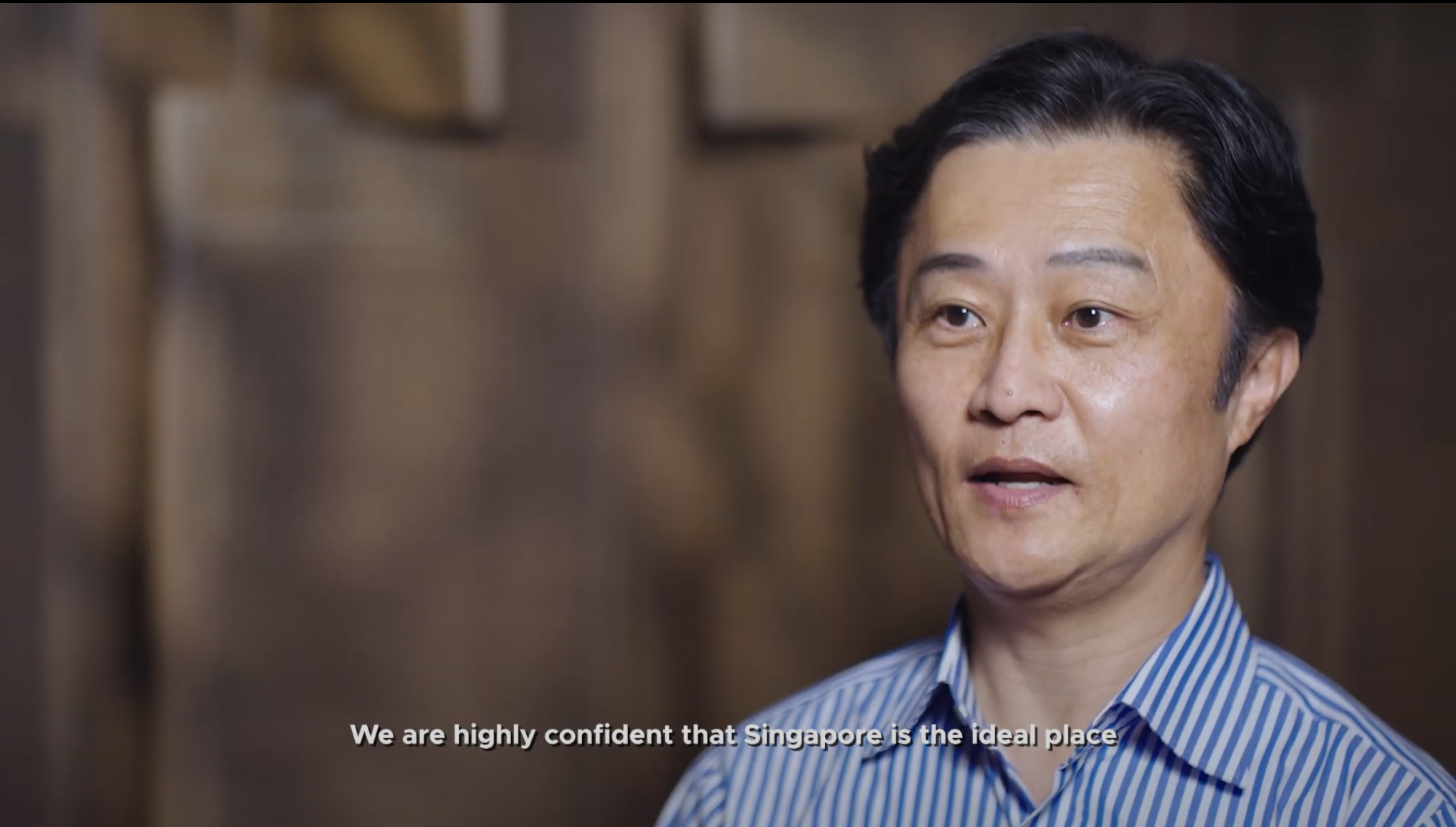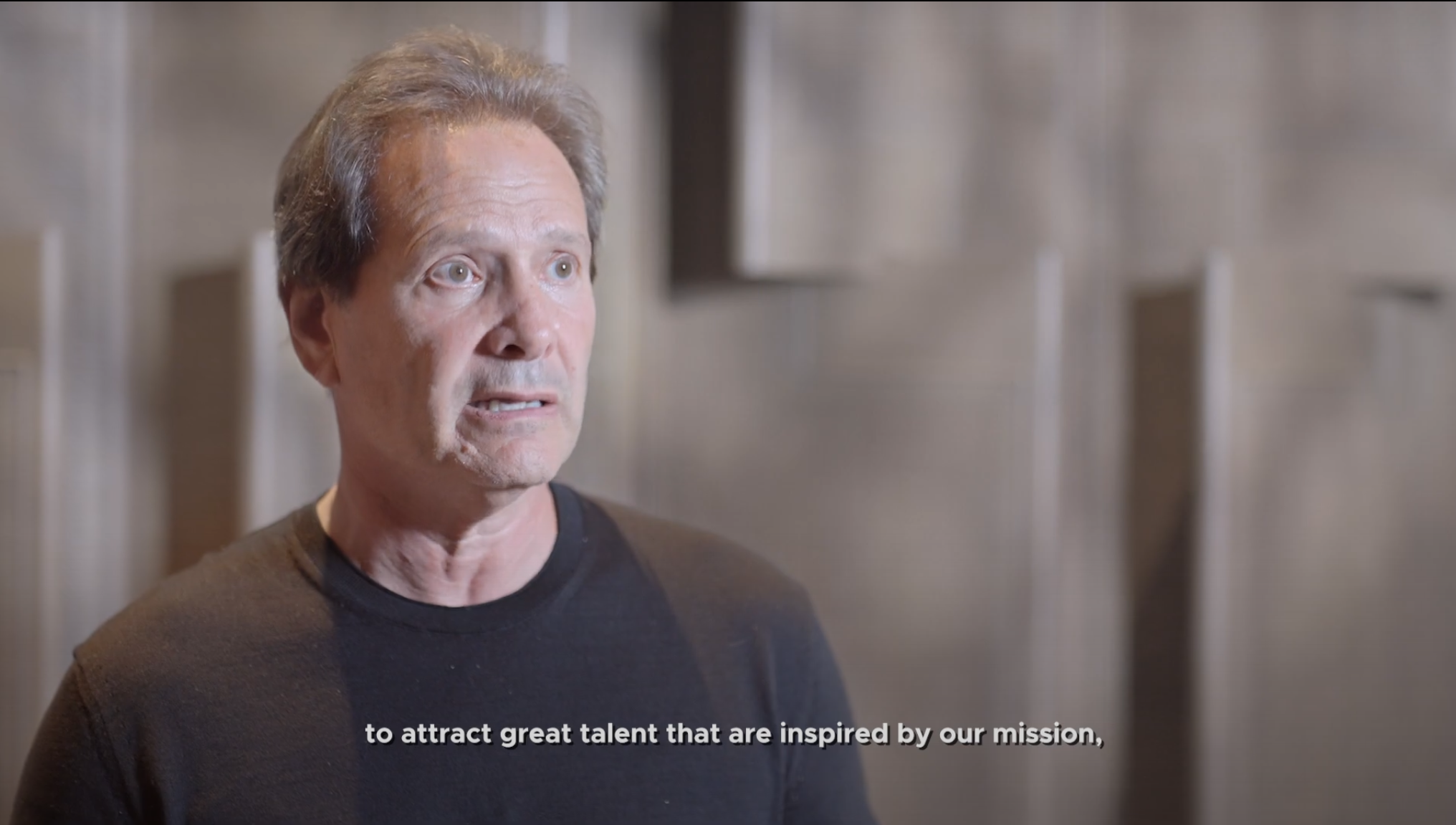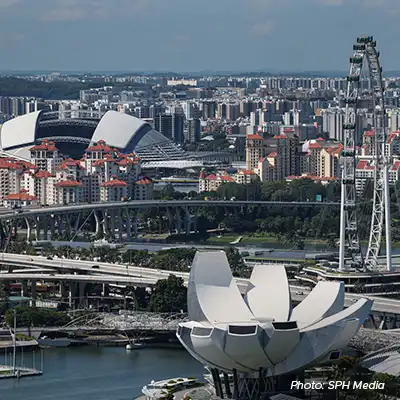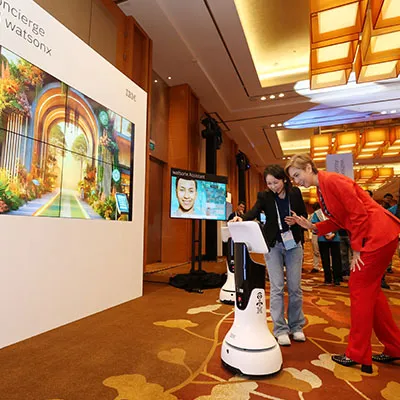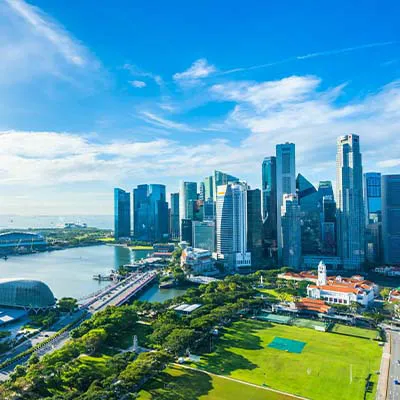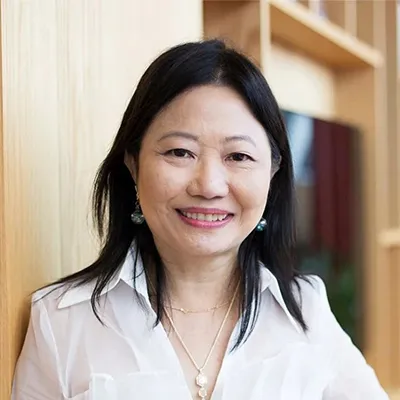Illumina has over 1,300 employees in the city-state, which is home to its largest manufacturing operation globally. It’s the only facility in the world that produces the full suite of Illumina products including reagent kits, consumables and sequencing instruments. Singapore also hosts Illumina’s first R&D center in Asia.
“We need extraordinarily talented people in areas like manufacturing and operations, but also in areas like molecular biology, machine learning and AI,” deSouza says. “Singapore is unique in that you have access to all that talent, not just locally, but from all around the region because Singapore is a very powerful hub for talent. That allows us to attract the people we need to build the machines that attack some of the world’s biggest problems.”
Building a Sustainable Future
One of the biggest problems we are facing is climate change. If we do not act urgently, rising temperatures could wreak irreversible damage on our planet. To tackle this, collaboration is needed across a broad range of industries, including transport. To that end, Hyundai Motor Group established the Hyundai Motor Group Innovation Center in Singapore (HMGICS), due to open at the end of 2022.
“We are dedicated to ensuring that we take better care of the environment for future generations,” says Dr. Chi Young Cho, President & Chief Innovation Officer, Hyundai Motor Group. “We know that Singapore has an ambition to have all vehicles run on cleaner energy by 2040, which is aligned with Hyundai’s vision of progress for humanity. Given its dedication to building a sustainable future, Singapore was an obvious choice for our innovation center.”

